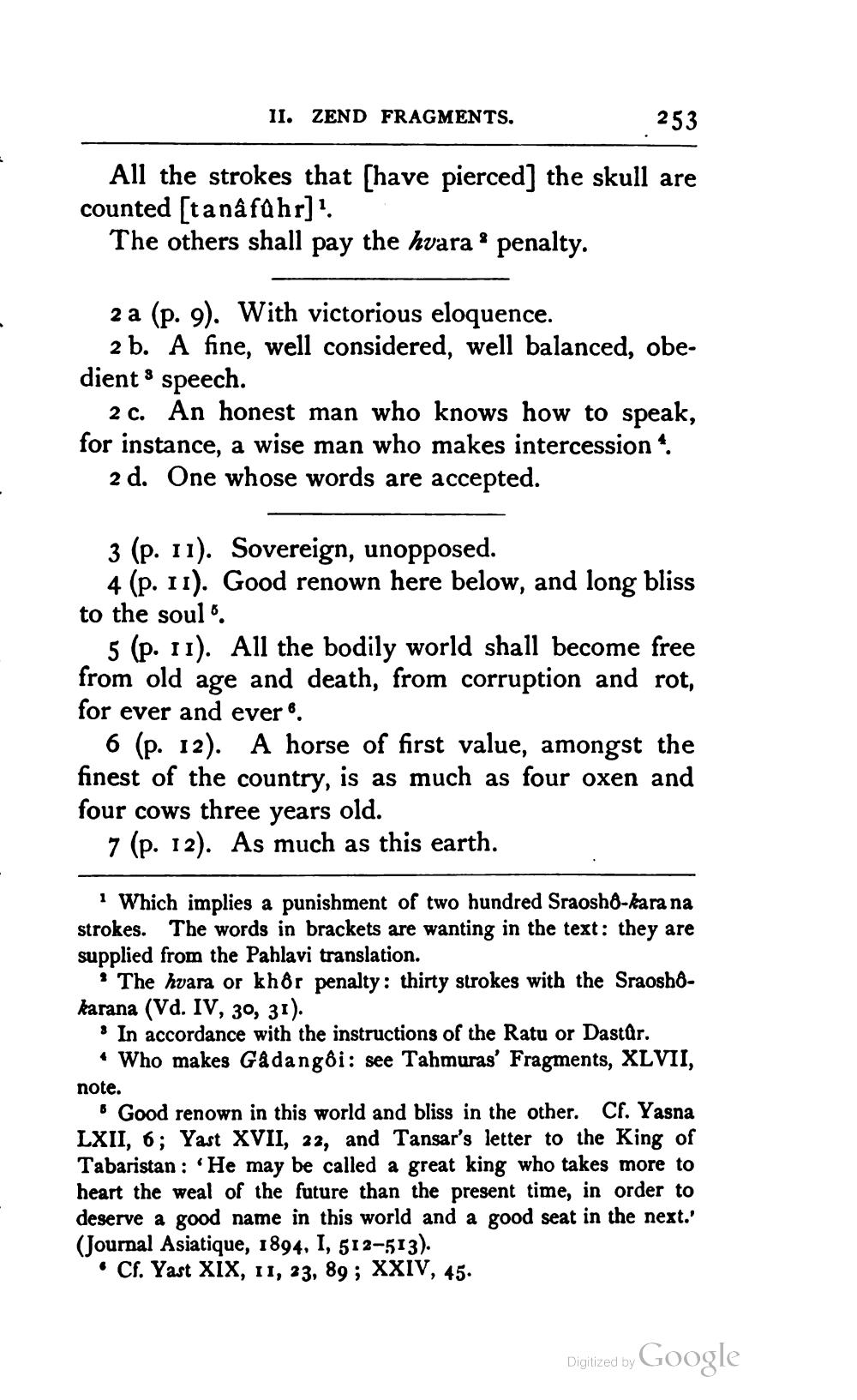________________
253
All the strokes that [have pierced] the skull are counted [tanâführ]1.
The others shall pay the hvara' penalty.
II. ZEND FRAGMENTS.
2 a (p. 9). With victorious eloquence.
2 b. A fine, well considered, well balanced, obedient speech.
3
2 c. An honest man who knows how to speak, for instance, a wise man who makes intercession *. 2 d. One whose words are accepted.
3 (p. 11). Sovereign, unopposed.
4 (p. 11). Good renown here below, and long bliss to the soul".
5 (p. 11). All the bodily world shall become free from old age and death, from corruption and rot, for ever and ever".
6 (p. 12). A horse of first value, amongst the finest of the country, is as much as four oxen and four cows three years old.
7 (p. 12). As much as this earth.
1 Which implies a punishment of two hundred Sraosho-kara na strokes. The words in brackets are wanting in the text: they are supplied from the Pahlavi translation.
The hvara or khôr penalty: thirty strokes with the Sraoshôkarana (Vd. IV, 30, 31).
• In accordance with the instructions of the Ratu or Dastûr. Who makes Gâdangôi: see Tahmuras' Fragments, XLVII,
note.
Good renown in this world and bliss in the other. Cf. Yasna LXII, 6; Yast XVII, 22, and Tansar's letter to the King of Tabaristan: 'He may be called a great king who takes more to heart the weal of the future than the present time, in order to deserve a good name in this world and a good seat in the next.' (Journal Asiatique, 1894, I, 512-513).
Cf. Yast XIX, 11, 23, 89; XXIV, 45.
Digitized by
Google




